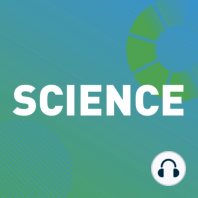59 min listen

208. UW Engage Science 2023: Violet Sorrentino & Tessa Code
208. UW Engage Science 2023: Violet Sorrentino & Tessa Code
ratings:
Length:
68 minutes
Released:
Jun 13, 2023
Format:
Podcast episode
Description
UW Engage Science sees a future where every graduate student has access to science communication training, and therefore good science communication becomes the norm. The outcome is an increased public trust and positive attitude toward science, ultimately strengthening the connection between the public and scientists. Join us for a look at the forefront of research in our region and meet the students who are leading the latest wave of scientific discovery. Violet Sorrentino: How tiny worms can help us understand the human brain The human brain is a complex structure populated with hundreds of billions of cells. When something goes wrong and the brain gets sick, how can we pinpoint which cells are having problems? That’s why some neuroscientists use tiny worms as a model. They have similar brain cells and molecules, but everything is on a much smaller scale, so we can take knowledge more easily gained from the worm brain and apply it to humans. Brain cells called glia eat small parts of other cells, but eating too much or too little can cause diseases like Alzheimer’s or Parkinson’s. If we use worms to better understand the eating process, maybe we can develop treatments for these diseases. Violet Sorrentino is a cell biology graduate student at Fred Hutch, where she uses microscopic worms to study communication between two types of brain cells. The conversation between these cells helps maintain a happy and healthy brain, and she is working to define the molecular language these cells speak. Tessa Code: The threat of artificial light to young salmon in Lake Washington Juvenile sockeye salmon are not surviving their early growth phase in Lake Washington. Their main fish predator has heightened hunting efficiency due to the artificial light around the lake which brightens the water column. Artificial light at night is increasing at a rapid pace, brightening the sky more than ever before. Determining how salmon and their predators respond to the light levels in the lake would help Seattle and nearby cities to change lighting and help recover the salmon population. Tessa Code is a graduate student at the University of Washington and she works as a technician for the US Geological Survey Western Fisheries Research Center. Her research uses hydro-acoustics and light sensors to study the effect of artificial light on fish predator-prey dynamics in waterbodies around Seattle.
Released:
Jun 13, 2023
Format:
Podcast episode
Titles in the series (100)
131. Christopher A. Bail: Defeating Political Tribalism with Social Media: In an era of increasing social isolation, platforms like Facebook and Twitter are among the most important tools we have to understand each other. But user behavior suggests that these platforms are also powering deep social divisions... by Town Hall Seattle Science Series